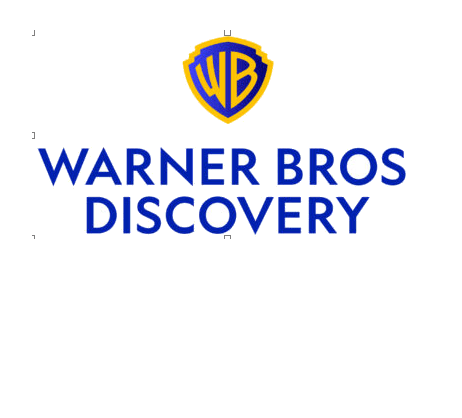Are you curious about the Warner Brothers Discovery merger and what it means for the entertainment industry? Are you interested in learning more about how this historic deal will shape the future of streaming services? If so, this blog post is for you! We’ll explore the implications of this merger, from content to distribution and beyond.
In April of 2022, AT&T and Discovery completed a $43 billion merger that created the media conglomerate Warner Bros. Discovery. This merger was formed after the spin-off of WarnerMedia by AT&T and its merger with Discovery, Inc. The primary focus of the merger is to consolidate the two companies’ streaming libraries along with CNN’s live news content. With this merger, HBO Max and Discovery Plus will merge into a single streaming service. David Zaslav, chief executive of Discovery, Inc., said that Warner Bros. Discovery will aspire to be the most innovative, exciting, and fun place to tell stories in the world. The company has already begun trading on the Nasdaq under the ticker symbol “WBD”. With this merger comes both potential benefits and challenges that could have a lasting impact on the television and movie industry, investors, and executives in the C-suite.
The Impact of the Merger
The impact of the Warner Brothers and Discovery merger will be far-reaching. The newly formed company has the potential to be a formidable presence in the entertainment industry, with access to a variety of content across different genres. The merger will also create a powerful new player in the streaming wars as the newly formed company will have access to both HBO Max and Discovery, two of the biggest streaming services in the market. The merger could also lead to further consolidation in the entertainment industry, as other companies attempt to compete with the new entity. The content produced by the company may also be of a higher quality, as it will now have access to the resources of both companies.
The Benefits of the Merger
The Warner Brothers Discovery merger presents a number of potential benefits for the companies involved, such as a larger customer base, greater financial stability, and access to a wider range of content. The merger also creates a stronger overall entertainment brand, allowing them to better compete in the streaming wars. This could ultimately lead to more innovative and successful content across multiple platforms. Moreover, the increased financial stability could lead to increased investment in content and more opportunities for both established and new talent. The combination of these two companies creates an exciting opportunity to create unique content and experiences for viewers.
The Challenges of the Merger
The Warner Brothers Discovery merger has not been smooth sailing. It faces daunting challenges, including a messier-than-expected merger and a huge debt of $55 billion. CEO David Zaslav has had to slash content costs in order to prove the amazing synergies of the deal, and the company has consistently cancelled shows and pulled content from streaming services. With limited funds, it is difficult to grow the business and create new streaming options for viewers.
What It Means for the TV and Movie Industry
The Warner Bros. Discovery merger is a seismic shift in the television and movie industry. The new company will now control the rights to many of the biggest shows and movies in the world, including HBO’s Game of Thrones and Discovery’s Property Brothers. This will likely mean fewer options for consumers, as the two companies will likely be able to negotiate better deals with studios and production companies. It also means that consumers can expect to see more cross-promotion between HBO Max and Discovery Plus, as they become more intertwined in the coming years. The merger could also result in some new content ideas, as the combined resources of the two companies are greater than ever before.

The Future of Streaming Wars
The merger of Warner Bros. and Discovery has major implications for the future of the streaming wars. The combined company now has immense content resources, giving it the ability to compete in the streaming world with the likes of Disney and Netflix. With its massive library, Warner Bros. Discovery can offer a wide variety of content and appeal to larger audiences than ever before. This could lead to increased competition in the streaming market and potential new entrants, as well as an acceleration of existing trends in the industry. With these changes afoot, it is sure to be an exciting time for the streaming wars.
The Potential for Innovation in Content
The merger between WarnerMedia and Discovery brings together two of the biggest forces in media, creating a powerhouse in the entertainment industry. This opens up a wealth of opportunities for innovation in content, from creative collaborations to new technology. As David Zaslav, the CEO of Discovery, said, the company plans to invest even more in content with the aim of becoming “the most innovative, exciting and fun place to tell stories in the world”. By joining forces with WarnerMedia, Discovery has access to some of the most beloved franchises in entertainment, from DC and Harry Potter to HBO and CNN. With this merger, both companies have a larger library of content that can be used to create new and exciting stories for their streaming services. The potential to create innovative content is limitless and both companies are well positioned to take advantage of this opportunity.
What It Means for Investors
For investors, the merger of Warner Bros. and Discovery has the potential to be a game-changer. Telecom giant AT&T chose to spin off, rather than split off, WarnerMedia in a key step of the entertainment unit’s merger with Discovery. Under the terms of the agreement, AT&T shareholders will own 71% of the new company and will receive 0.24 shares of Warner Bros. Discovery for each AT&T share they own. The new company will shoulder significant debt post-transaction, with Discovery executives vowing to reduce the leverage ratio from about 5x to 4x in the first year after closing. Ultimately, this could mean an opportunity for investors to benefit from a more diversified revenue base and enormous potential synergies that could come as a result of the merger.
The Impact on C-Suite Executives
The WarnerMedia and Discovery merger has already had an impact on the top executives of the two companies. In April, multiple executives left their posts as the merger was being finalized. CEO David Zaslav has chosen top execs mostly from Discovery, but also four from WarnerMedia. This indicates that the merger is, in effect, an acquisition, even though both parties call it a merger. The wave of departures show that the new company will be largely shaped by Discovery’s leadership.
Conclusion: What Does the Future Hold?
The Warner Bros. Discovery merger is a landmark deal with potentially major implications for the TV and movie industry. With this merger, WarnerMedia and Discovery have the potential to create a powerful media company with a vast library of content, as well as create new opportunities for innovation in content. The merger also creates potential opportunities for investors, as well as potential challenges for C-suite executives. The future of streaming wars and the success of this merger remain to be seen, but one thing is certain: the Warner Bros. Discovery merger has the potential to be a game changer.






